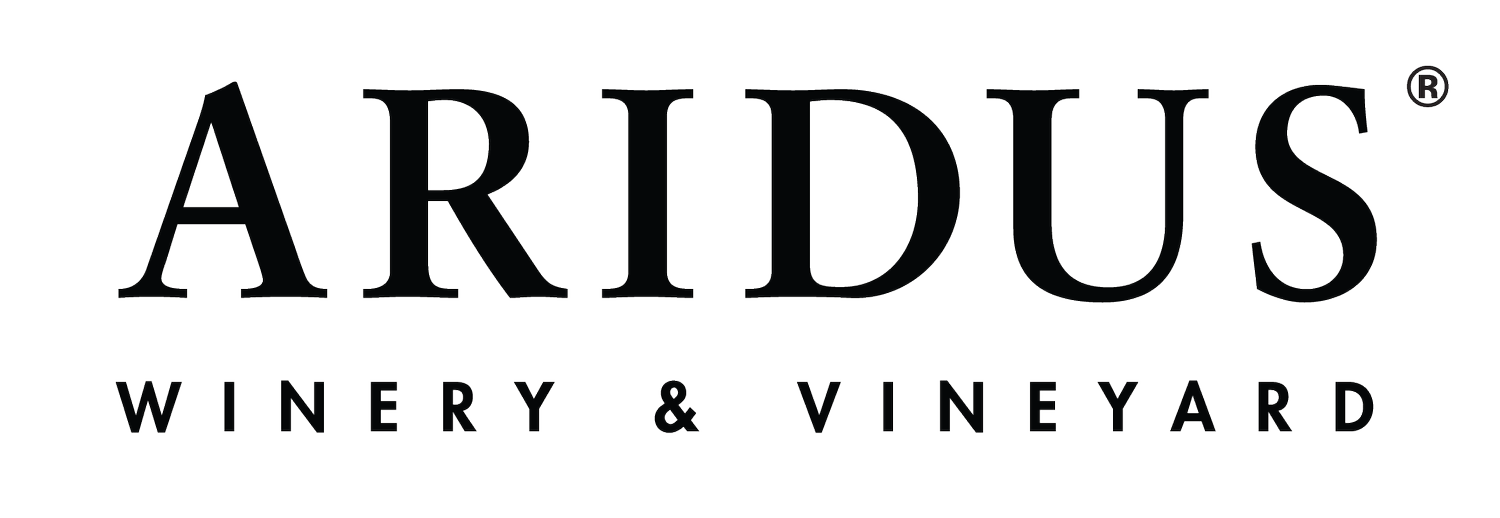Aridus 2020 Harvest Report
Aridus Wine Company crushed 85.9 tons of grapes during this year’s harvest.
Based in Willcox, Arizona, in the southeastern part of the state, Aridus makes its wines from grapes sourced from vineyards in Arizona, New Mexico and California. At 28,000 square feet, it is one of the largest winery facilities in the state, and houses state of the art wine making equipment. Surrounded by majestic mountains, the winery is an appealing combination of a historic setting and modern design. The building was once an apple warehouse; it was stylishly rehabbed with recycled local lumber and the interiors feature antique light bulbs and other cave-like design touches.
Harvest began on July 22 with Chardonnay from Chiricahua Ranch Vineyard on the Willcox Bench in Arizona.
This is the fourth harvest from the winery’s 40-acre estate vineyard in Pearce, Arizona, which is about a 45-minute drive from the winery in Willcox. The vineyard is planted to Cabernet Sauvignon, Malbec, Syrah, Sauvignon Blanc, Viognier, Malvasia, Merlot, Tempranillo, Graciano, Petit Verdot, Petite Sirah and Cabernet Franc. The vineyard sits at an elevation of approximately 5,000 feet. “This estate vineyard defines a unique mix of mountain and desert fine wine grape growing,” explains winery owner Scott Dahmer. The vineyard experiences 13 inches of rain, 1 inch of snow and temperatures which average around 30 degrees in the cooler months to highs of around 94 degrees in the summer.
The smallest lot of grapes were .76 ton of Mourvedre from the High Lonesome Vineyard just outside of Tombstone, Arizona. The largest lot was 11.9 tons of Viognier from the winery’s estate vineyard.
The winery crushed 16 different varieties, from vineyards in Arizona and New Mexico. On a percentage basis, 90.5% of the grapes came from Arizona, 9.5% from New Mexico; 54% of the total crushed came from the winery’s estate vineyard.
72% of the grapes will become red wines; 26% white wines and 2% Rose.
“This season started much earlier than last year – 15 days earlier, and ended earlier as well – 14 days earlier,” explains winemaker Lisa Strid. “We also got off to a rocky start, when the Sauvignon Blanc jumped 4 Brix in 4 days and went from under-ripe to over-ripe in less than a week. The heat didn’t let up at all throughout harvest, with multiple days over 100F and little to no rain from this year’s weak monsoon. July would have been our hottest month on record, but then August happened and that became the hottest month on record. In fact, we brought in almost all of our fruit in one mad dash in August. Only 10 tons (13% of the harvest, 4 varieties) came in in September,” she added.
Then, unlike in many other growing regions, there is considerable wildlife in and around the winery in Willcox. “This year on the crush pad, we caught and freed a very fat rat, saw a horned lizard, and dealt with a pair of brazen little brown birds of unknown species that repeatedly came into the winery and barrel room throughout harvest,” Strid reports. Roadrunners and javelinas have also been seen around the winery.
Wine growing in Arizona? “Even though there have been commercial wineries in Arizona since the late 1970s, wine growing remains an emerging industry not for the faint of heart,” Lisa Strid offers. “Whether it’s monsoons or scorching draught, there’s nothing that’s not challenging about our growing seasons. Nonetheless, the reward is in the quality of the wines we produce and we’re forever grateful to the wine drinking community who have found us and continue to support us through it all,” she adds.

